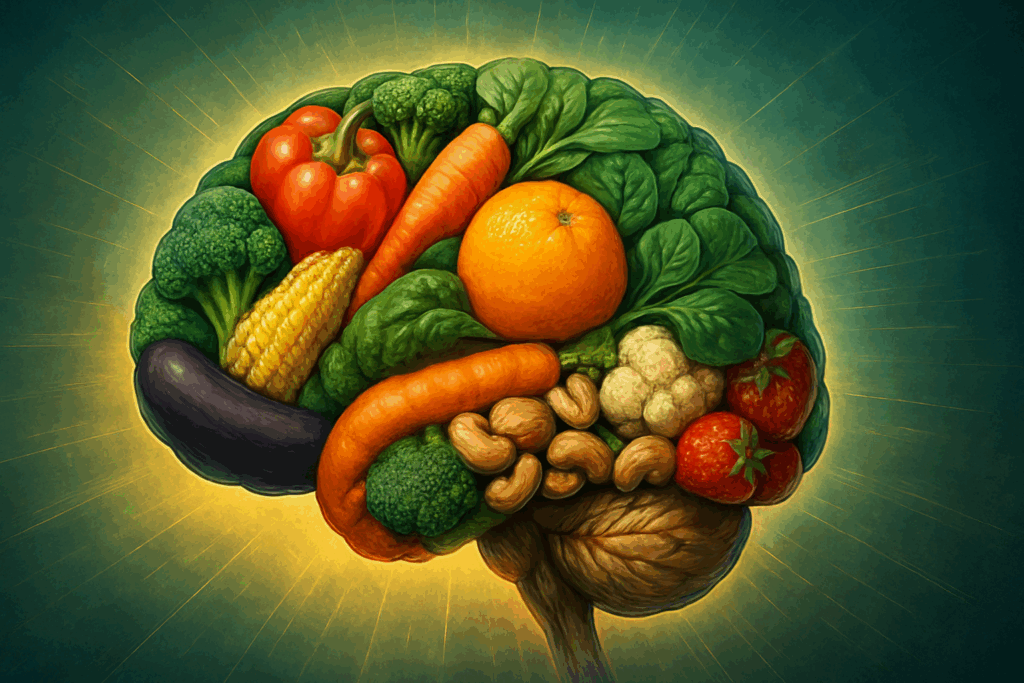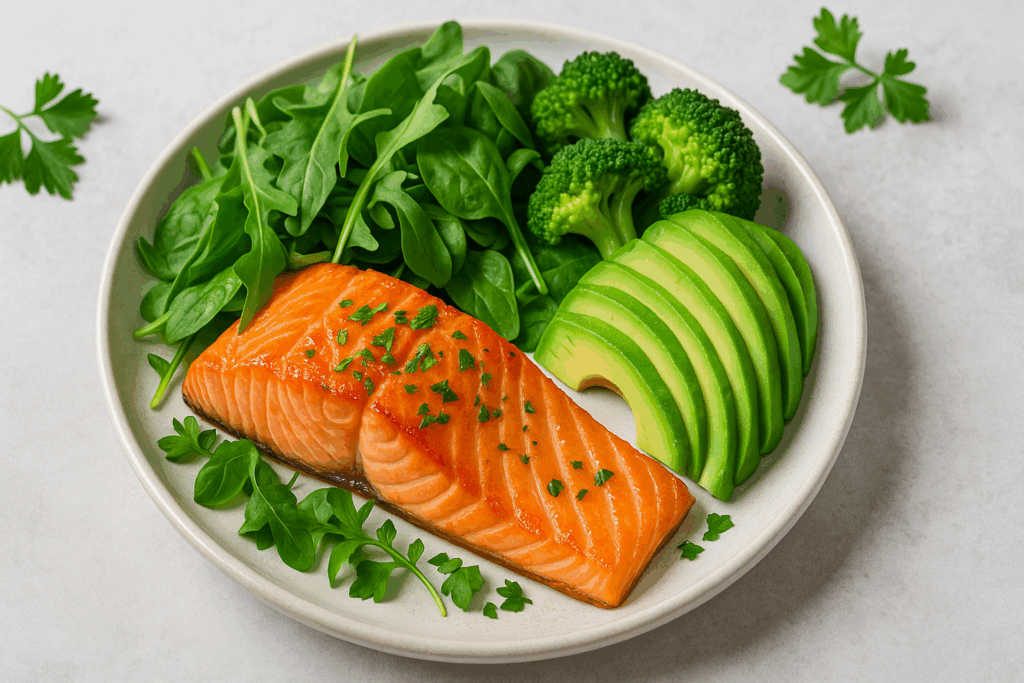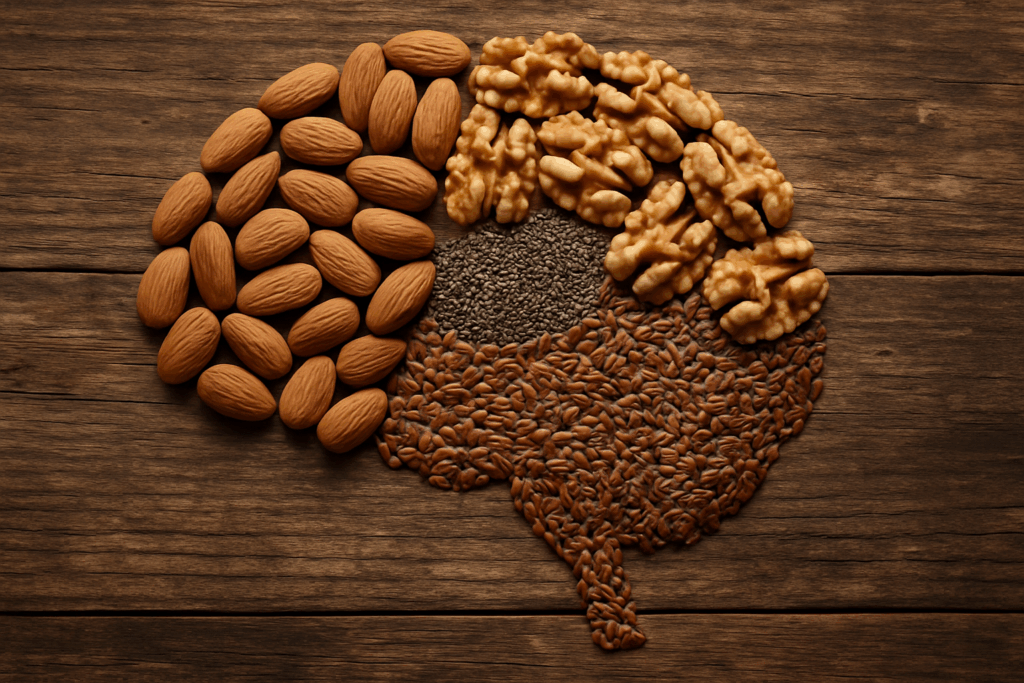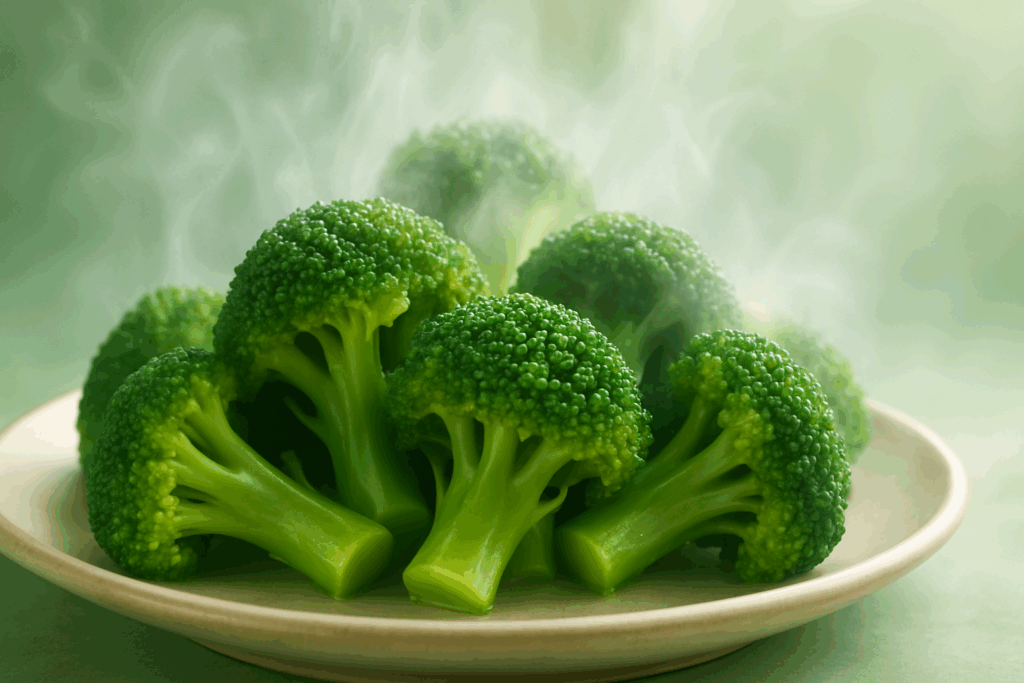Introduction: The Vital Connection Between Nutrition and Decision Making in Critical Thinking
Critical decision making is not merely a cognitive exercise; it is deeply rooted in the physical health of our brain and nervous system. The ability to make decisions, especially under pressure, hinges on maintaining optimal mental clarity, sustained focus, and a well-functioning memory. These faculties are directly influenced by the nutrients we consume daily. Understanding how food impacts decision making in critical thinking offers a powerful, science-backed way to sharpen focus and promote better cognitive performance. In a world increasingly demanding rapid yet accurate decision making, nurturing the brain through nutrition becomes essential. This article explores how top natural foods can meaningfully support critical thinking and decision making ability, highlighting the nutritional science behind these benefits while providing actionable tips for better mental clarity.
You may also like: Navigating Life: Anxiety’s Impact on Decision-Making
Why Critical Decision Making Needs Nutritional Support
When discussing decision making in critical thinking, it is important to recognize the underlying physiological processes involved. The brain requires a steady supply of glucose, healthy fats, amino acids, vitamins, and minerals to function optimally. Any imbalance can impair neurotransmitter production, reduce cognitive flexibility, and slow processing speed—all essential elements for good decision making. Research shows that decision making ability is significantly related to being in a state of nutritional adequacy. Whether navigating complex work scenarios, personal dilemmas, or academic challenges, proper nutrition primes the brain for faster retrieval of information, effective emotional regulation, and clear judgment. Developing decision making at work examples, such as problem-solving in leadership roles or making ethical business choices, reveals the importance of a well-nourished mind. Thus, integrating nutrient-dense foods into one’s diet can serve as a strategic enhancement to all stages of critical decision making.

How Many Steps Are in the Decision Making Process? Understanding the Brain’s Role
The decision making process, whether we consider the 5 steps of decision making or expand to the 7 step decision making process, relies on various cognitive domains including memory, attention, and problem-solving. When asking how many steps are there in the decision making process, the answer may vary depending on the model, but the fundamental requirement remains: a brain prepared to assess, compare, and decide effectively. Brain-friendly foods help reinforce each cognitive step, from recognizing a problem to evaluating alternatives and implementing solutions. Without adequate mental energy and neurotransmitter balance, even understanding which step comes first in the decision making process becomes challenging. To nurture this sequential flow, maintaining consistent intake of brain-boosting nutrients is as critical as honing strategic thinking skills.
Blueberries: Antioxidant Power for Better Critical Decision Making
Blueberries have emerged as a superfood for cognitive enhancement. Packed with anthocyanins and flavonoids, they help reduce oxidative stress and inflammation—two factors that can impair cognitive performance. Studies have shown that blueberries can improve memory retention and executive function, key components of decision making in critical thinking. Regular consumption of blueberries aligns with boosting performance across all seven steps of decision making. Whether you are working on how to memorize something for a test or tackling the five decision making steps in a workplace project, the neuroprotective effects of blueberries provide a scientific edge. Their ability to increase brain-derived neurotrophic factor (BDNF) also supports better neuron communication, allowing faster retrieval of learned information, essential for efficient problem solving.

Fatty Fish: Omega-3s for Enhanced Focus and Cognitive Resilience
Fatty fish like salmon, sardines, and mackerel are rich sources of omega-3 fatty acids, specifically DHA and EPA. These compounds play a pivotal role in maintaining the fluidity of cell membranes in the brain and reducing neuroinflammation. Enhancing the brain’s structural integrity supports the entire 7 steps of decision making, enabling clearer thinking and better judgment. In contexts such as academic studying—when considering how to remember stuff when studying—fatty fish can improve both long-term memory and short-term focus. Similarly, individuals reflecting on what is the third step in the decision making process (evaluating alternatives) benefit from the mental sharpness supported by regular omega-3 intake. Furthermore, studies link omega-3s to improved emotional regulation, helping individuals remain calm and objective during critical decision making.
Leafy Greens: Fueling Cognitive Processes and Memory Storage
Leafy greens such as spinach, kale, and Swiss chard are rich in folate, vitamin K, lutein, and beta-carotene, all of which are known for their brain-boosting effects. Consuming these vegetables regularly supports brain regions involved in planning, analysis, and judgment—all vital for good decision making ability. In the development decision making pathway, leafy greens contribute to faster and more accurate recall, beneficial for students asking how to memorize something for a test or professionals navigating the five stages of decision making process. Folate, in particular, aids in the production of neurotransmitters like dopamine and serotonin, which influence mood and cognitive performance. Understanding how many steps are in the decision making process becomes more intuitive when the brain is biochemically equipped to manage complex information processing.

Nuts and Seeds: Micro-Nutrient Powerhouses for Decision Agility
Almonds, walnuts, flaxseeds, and chia seeds deliver essential vitamins, minerals, and healthy fats that support neural connectivity. They are high in magnesium, which reduces stress, and in vitamin E, an antioxidant associated with slowing cognitive decline. With high stakes and fast-paced environments demanding critical decision making, integrating nuts and seeds into one’s diet is an accessible yet powerful strategy. During intensive exam preparations, when students ponder what you read for exams or how to remember things while studying, these foods can sustain mental endurance. For professionals navigating eight steps in the decision making process, maintaining optimal brain health with these nutrient-dense foods can mean the difference between quick, sound decisions and cognitive fatigue.
Dark Chocolate: Immediate Cognitive Boost for Decision Making Under Pressure
Dark chocolate, especially varieties containing at least 70% cacao, offers a unique combination of antioxidants, flavonoids, and caffeine. These compounds increase cerebral blood flow and stimulate the release of endorphins, enhancing mood and mental alertness. Dark chocolate consumption can assist individuals moving through the 5 stages of decision making process, especially during stages that demand heightened focus and quick judgment. Those exploring what is the second step in the decision making process (gathering information) can benefit from dark chocolate’s rapid cognitive effects. Moreover, its flavonoids foster neurogenesis—the formation of new neurons—which supports ongoing learning and memory consolidation, critical for those mastering how to memorize something for a test or perform well during high-pressure workplace evaluations.

Eggs: Choline for Memory and Analytical Thinking
Eggs, particularly their yolks, are rich in choline, an essential nutrient involved in acetylcholine production, a neurotransmitter critical for memory and learning. The role of eggs in supporting critical decision making is grounded in their ability to enhance memory retention and cognitive agility. Navigating the seven steps of decision making requires sharp recall and the ability to synthesize information from multiple sources, capacities strengthened by choline intake. For students grappling with how to remember things while studying or professionals executing decision making at work examples like strategic planning, including eggs in the diet can confer measurable cognitive benefits. Regular consumption supports the neurophysiological processes necessary for making timely, informed decisions.
Green Tea: Calm Focus and Sustainable Cognitive Energy
Green tea offers a combination of caffeine and the amino acid L-theanine, creating a state of calm alertness ideal for critical thinking. Unlike the jittery focus induced by coffee, green tea promotes a balanced state that enhances the decision making ability without overstimulation. For those reviewing the seven steps of decision making and striving to make decisions under pressure, green tea provides both energy and emotional stability. It has been shown to improve both attention span and working memory—essential skills for understanding how many steps are there in the decision making process and for implementing all eight steps in the decision making process effectively. Moreover, its high antioxidant content supports long-term brain health, reinforcing the cognitive foundation necessary for critical decision making throughout life.
Avocados: Monounsaturated Fats for Neural Efficiency
Avocados are loaded with healthy monounsaturated fats that support blood flow and, by extension, better brain performance. They are also rich in lutein, a carotenoid that accumulates in the brain and enhances cognitive functions related to decision making in critical thinking. Regular consumption of avocados can help individuals maintain the mental stamina required for the extended focus necessary in the 7 step decision making process. When students prepare to memorize extensive material or professionals engage with development decision making tasks, the brain’s need for sustained energy and high-functioning neural circuits becomes paramount. Avocados offer a delicious and versatile means to fulfill these nutritional needs, supporting sharper focus and better decision outcomes.
Broccoli: Brain Detoxification and Cognitive Support
Broccoli contains compounds like sulforaphane that activate detoxification pathways in the brain, clearing oxidative waste that could otherwise impair cognitive performance. This supports clear thinking and enhances the ability to make decisions, particularly when navigating the complexity of the five decision making steps. For individuals aiming to improve their memory of what you read for exams, broccoli’s impact on overall brain health provides an advantage. It reinforces both immediate cognitive performance and long-term brain resilience, essential for mastering how to remember things while studying and for practicing sound decision making in work and life scenarios.

FAQ: Natural Foods and Their Role in Supporting Critical Decision Making in Critical Thinking
1. How can specific nutrients enhance decision making in critical thinking beyond basic brain function?
While general brain function benefits from balanced nutrition, certain nutrients like omega-3 fatty acids, flavonoids, and antioxidants have unique properties that specifically strengthen decision making in critical thinking. For example, omega-3s enhance synaptic plasticity, which facilitates faster and more flexible thinking during critical decision making scenarios. Flavonoids found in berries can directly improve cerebral blood flow, sharpening cognitive agility needed in high-stakes environments. These advanced mechanisms go beyond simply “feeding” the brain; they structurally support complex decision pathways. Understanding these deeper effects allows for a more strategic use of nutrition to optimize critical thinking.
2. Why is emotional regulation important for critical decision making, and how can food influence it?
Effective decision making in critical thinking often requires emotional neutrality to objectively assess options and outcomes. Foods rich in magnesium, such as nuts and leafy greens, help regulate the body’s stress response by moderating cortisol levels. By reducing stress, these foods indirectly enhance critical decision making by preventing impulsive, emotionally driven errors. Additionally, foods like green tea provide L-theanine, which promotes a calm yet alert mental state ideal for complex reasoning tasks. Hence, choosing emotionally supportive foods is a practical tool for improving the quality of critical thinking under pressure.
3. Can diet modifications speed up recovery from decision fatigue?
Yes, strategic diet changes can significantly reduce the effects of decision fatigue, a condition where mental resources are depleted after prolonged critical decision making. Foods that stabilize blood sugar, like whole grains and healthy fats, prevent cognitive crashes that compromise decision making in critical thinking sessions. Antioxidant-rich foods like blueberries help reduce oxidative stress built up during intense thinking periods. Incorporating these foods during and after high-decision periods fosters quicker cognitive recovery and prepares the brain for subsequent tasks. This proactive approach to nutrition ensures resilience during marathon thinking challenges.
4. How does hydration status affect critical decision making and critical thinking skills?
Hydration plays a less obvious but critical role in decision making in critical thinking. Even mild dehydration has been shown to impair concentration, short-term memory, and the ability to discern subtle details—all key aspects of critical decision making. Water-rich foods like cucumbers, celery, and citrus fruits can complement direct water intake to maintain hydration levels during cognitively demanding periods. Integrating these foods into a daily routine can prevent decision-related errors stemming from unnoticed cognitive decline. Maintaining hydration is thus an essential, often overlooked pillar of optimizing critical thinking performance.
5. Are there any timing strategies for eating to maximize critical decision making ability?
Timing food intake can powerfully affect decision making in critical thinking. Eating complex carbohydrates like oats or quinoa about 1-2 hours before a major decision task provides steady glucose, fueling sustained brain activity. Similarly, incorporating quick energy sources such as fruits 15-30 minutes prior can sharpen immediate mental responsiveness crucial for real-time critical decision making. Post-decision meals rich in protein and healthy fats support neural recovery and memory consolidation. By strategically timing nutrition, individuals can better match cognitive demands with metabolic support for peak critical thinking performance.
6. How do gut health and the microbiome influence critical decision making?
Emerging research reveals that gut health significantly impacts cognitive functions critical for decision making in critical thinking. A healthy microbiome produces neurotransmitters like serotonin and dopamine, which are crucial for mood regulation and focus. Fermented foods such as yogurt, kimchi, and kefir enhance gut flora diversity, indirectly supporting clearer, more resilient thinking during complex decision scenarios. Inflammatory gut conditions, conversely, have been linked to brain fog and impaired judgment. Investing in gut health is thus a promising frontier for those seeking to sharpen their critical decision making edge.
7. Can intermittent fasting enhance or impair critical thinking and decision making ability?
Intermittent fasting may enhance decision making in critical thinking for some individuals by promoting autophagy, a cellular “clean-up” process that can improve neural efficiency. Short fasting windows may lead to sharper focus and quicker pattern recognition during critical decision making tasks. However, prolonged fasting can cause low blood sugar, impairing judgment, memory, and reaction time if not carefully managed. Personalized approaches—such as short fasting periods before light decision making and nutrient-rich meals before intensive critical thinking—offer the best balance. Understanding one’s own metabolic responses is key to using fasting strategically rather than detrimentally.
8. How do cultural dietary patterns affect decision making in critical thinking across different populations?
Cultural diets heavily influence cognitive baselines and, therefore, critical decision making capabilities. Mediterranean diets rich in olive oil, fish, and vegetables are linked to superior memory and executive function, vital for strategic decision making in critical thinking. In contrast, heavily processed, high-sugar diets prevalent in Western societies have been associated with diminished cognitive flexibility and emotional regulation. Studying these differences reveals practical insights into how long-term dietary patterns can either support or hinder the capacity for high-quality critical decision making. Tailoring aspects of traditionally healthy diets to modern routines could offer universal cognitive benefits.
9. What role does breakfast play in supporting critical decision making throughout the day?
Breakfast composition critically shapes decision making in critical thinking for the rest of the day. High-protein breakfasts stabilize blood glucose and extend attention spans, bolstering critical decision making during morning work or study periods. Skipping breakfast often results in mid-morning cognitive crashes, undermining critical thinking capacity just when complex tasks often arise. Foods like eggs, Greek yogurt, and avocado toast are excellent choices for fueling long-term mental endurance. Thoughtful breakfast planning thus becomes a cornerstone of preparing for a day filled with intensive critical decision making demands.
10. Are there emerging superfoods or supplements that show promise for enhancing decision making in critical thinking?
Yes, several emerging superfoods and supplements are being explored for their ability to enhance critical decision making. Lion’s mane mushroom, for instance, stimulates nerve growth factor production, promoting neurogenesis and faster cognitive processing essential for decision making in critical thinking. Adaptogens like rhodiola rosea are studied for reducing mental fatigue and supporting critical thinking under stress. Nootropic compounds such as citicoline are being researched for enhancing memory and focus, key components of critical decision making. While promising, it is crucial to approach supplementation with an evidence-based mindset, prioritizing scientifically validated options to truly support cognitive excellence.

Conclusion: Empowering Critical Decision Making Through Smart Food Choices
In today’s complex and fast-paced world, critical decision making and critical thinking are essential life skills that extend across professional, academic, and personal domains. Developing decision making ability depends not only on mental training but also on the quality of fuel we provide to our brains. As this article illustrates, natural foods such as blueberries, fatty fish, leafy greens, nuts, seeds, dark chocolate, eggs, green tea, avocados, and broccoli offer profound support for cognitive clarity, memory retention, emotional regulation, and overall brain health. Mastering how many steps are in the decision making process, understanding what is the purpose of a decision, and efficiently navigating the seven steps of decision making becomes more attainable when the brain is nourished optimally. By integrating these foods into your daily diet, you lay a robust foundation for sharper focus, enhanced memory, and improved cognitive resilience, empowering yourself to thrive in decision making at work examples, academic pursuits, and everyday life challenges. With thoughtful, science-backed nutritional choices, better nerve health, cognitive clarity, and stronger critical decision making ability are well within reach.
Further Reading:
The Power Of Critical Thinking: Enhancing Decision-Making And Problem-Solving


